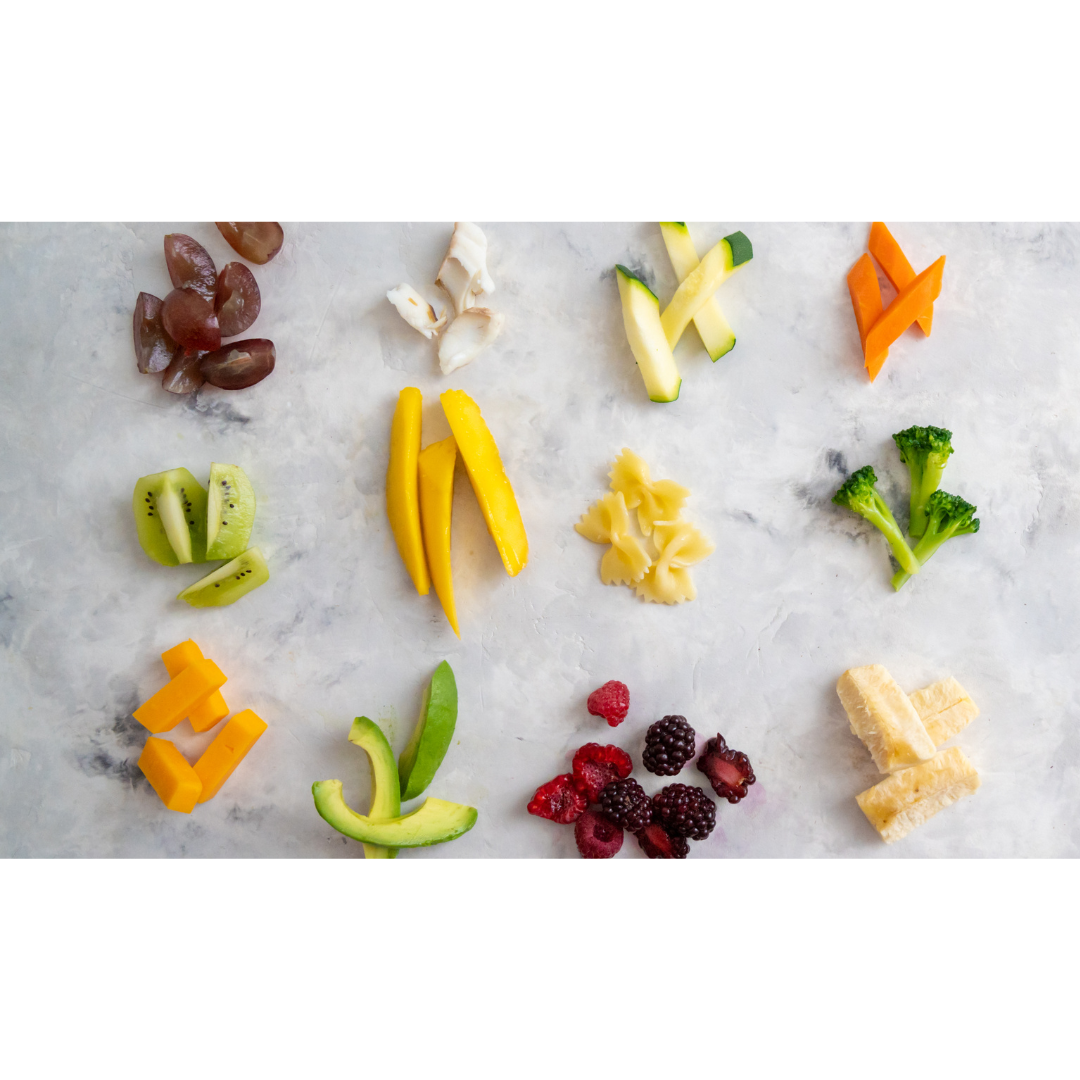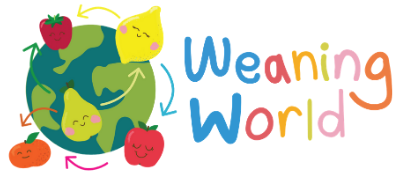
Top Ten Foods to Avoid During Weaning
(Some might surprise you)
Whilst there are certainly plenty of foods your baby can be introduced to when starting solids, as parents, it’s important to know which foods to avoid during weaning to help keep your baby safe. This blog shares ten foods to avoid with your baby during weaning, and why.
- Honey
Honey can seem like a great option for naturally sweetening foods, but it should be avoided for babies because it can contain a type of bacteria which causes a rare but serious condition called infant botulism. Avoid giving honey in any form before 12 months of age, and after this time, remember it still counts as a free (or added) sugar, so ideally, it should be limited.
- Unpasteurised dairy products
With rising social media trends for foods like raw milk and options like mould-ripened cheeses, which are widely available, parents are increasingly questioning whether these are some of the foods to avoid during weaning. Quite simply, the answer is no. Your baby has a developing immune system, and unpasteurised dairy products are at much higher risk of containing bacteria that can cause your baby to become very unwell. Food poisoning also disrupts the balance of good and bad bacteria in your baby’s gut.
- Low-fat foods
While you may have some lower-fat foods, like dairy, at home, fat is an exceptionally important nutrient for a baby’s rapidly growing brain. Steer clear of low-fat anything, and remember this is not a nutrient to be feared for young children.
- Processed meats
It is now widely recognised that processed meats like sausages and bacon pose a risk to health, and for babies, I recommend limiting these as well. They are often very high in salt, which should be kept to less than 1g per day for those under 12 months of age. Sausages are also among the most common foods that young children can choke on. If offering sausages, always cut them lengthwise for children, and never into rounds or ‘coins. ‘
- Sugar
Most parents know that sugar is something to be avoided wherever possible for babies, but many don’t realise that it can sneak into numerous foods marketed for babies and young children. From rusks to pre-prepared baby food or ‘snacks’ that use juice concentrates and highly processed fruit purees, be aware that these foods can adversely affect developing teeth and influence taste preferences.
- Whole nuts
Whilst nut butters and milled nuts are great to offer during weaning to avoid exposing babies to common food allergens and provide valuable nutrients and fibre, whole nuts pose a significant choking risk. They should be avoided in children under 5 years of age.
- Added salt
Your baby’s kidneys are still developing and are not mature enough to handle too much salt. Emerging research also shows that too much salt may affect the balance of healthy gut bacteria. Avoid offering salty snacks, switch stock cubes to low – or no-salt options, and keep processed foods to a minimum. Higher-salt foods such as cheese, which offer other nutritional benefits, can be included – just be mindful of portion sizes and frequency.
- Certain fish
Fish is a fantastic food to include during weaning – options like salmon or sardines provide valuable Omega-3 fats, and white fish like cod is rich in iodine, which is terrific for babies’ brain development. However, babies should avoid very high mercury fish, such as shark, swordfish, and marlin! (I’m sure these aren’t a staple in many houses anyway!)
- Rice drinks (milk alternatives)
With more and more babies following a milk-free diet, either due to food allergy or dietary preferences of the family, many parents are keen to understand suitable milk alternatives to use with their babies. Of those available, rice drinks should be avoided completely due to naturally high levels of inorganic arsenic.
- Too little variety
Ok, so this is a bit of backwards psychology – but dietary variety can support not only the experience and skills babies need to develop around eating, but also feed the growing community of good gut bacteria they are developing. Try to avoid weaning approaches or recommendations that suggest limiting lots of foods, or moving very slowly (unless medically advised to do so)
